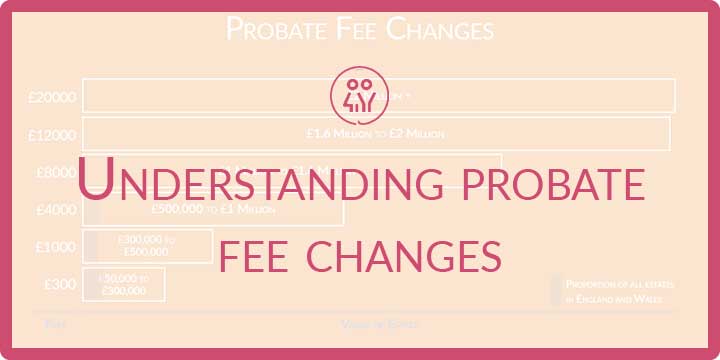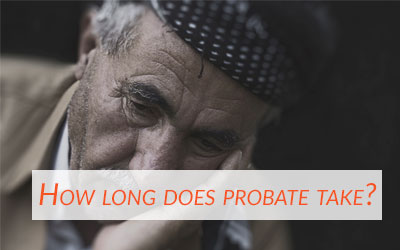Handling the estate of a loved one after they pass away can feel overwhelming, especially if you’ve never done it before. You may find yourself wondering where to start, what paperwork is needed, and how to ensure you follow the right legal procedures.
At Freeman Harris Solicitor, we’re here to guide you through the process of probate—what it is, how it works, and what you need to know as the administrator of your family member’s estate.
What Is Probate?
When your family member has passed away, probate is the legal process that gives you the authority to deal with their estate. The term “probate” often refers to both the specific legal document you may need and the overall process of managing someone’s property, money, and belongings after their death.
You’ll often need probate if your loved one’s estate includes either property or assets worth more than £10,000, or if certain assets were held in their name only. However, not all estates require probate, so it’s one of your first tasks to determine whether it’s necessary in your situation.
Grant of Probate vs. Grant of Letters of Administration
The type of legal document you’ll apply for depends on whether your family member left a valid will.
- Grant of Probate is needed if there is a valid will and you were named an executor. This document allows you to sell property, access funds, pay debts, and distribute assets according to your loved one’s wishes.
- Grant of Letters of Administration is required when there’s no will, or if the named executor is unable or unwilling to act. You, as a close next of kin, would become the administrator of the estate, performing similar responsibilities.
Both documents give you the legal authority you’ll need to manage the estate.
The Probate Process Explained
The process may seem complex, but breaking it into steps can make it more manageable. Here’s what to expect as you move through this legal responsibility.
Step 1: Determine If Probate Is Needed
Your first task is to find out if you even need probate. For example, probate is usually required if your deceased family member owned property or had bank accounts in their name. However, if most assets were jointly owned or the estate is small (under £10,000), you might be able to bypass probate entirely.
Step 2: Gather Information About the Estate
If probate is necessary, you’ll need to get organised. First, locate your loved one’s will, if they had one. Then, compile a detailed list of everything in the estate, including assets and liabilities. Here’s what to look for:
- Property ownership (e.g., their home or any other properties)
- Bank and savings accounts.
- Pensions and investments like stocks or shares.
- Life insurance policies.
- Outstanding debts like mortgages, loans, or unpaid bills.
- Gifts they gave within the last seven years (these may affect inheritance tax)
- Once you have this information, you’ll also need to contact organisations (banks, insurers, etc.) to confirm the value of each asset and liability at the time of death.
Step 3: Apply for a Grant of Probate
Once you’ve completed the groundwork, it’s time to apply for a grant of probate (or letters of administration). This part involves filling out forms and, in most cases, submitting an inheritance tax declaration. Forms like IHT205 or IHT400 are commonly required, depending on the estate’s complexity and whether inheritance tax is due.
This stage may feel daunting because of the technical requirements, so many people turn to solicitors or professional probate services for assistance. The approval process itself generally takes up to 16 weeks.
Step 4: Receive the Grant of Probate
After the application is approved, the grant of probate will be sent to you. This is the legal document that lets you carry out the real work of estate administration. With this authority, you can now step into actions such as selling property, closing down accounts, and accessing funds.
Step 5: Deal with Estate Administration
Once you’ve received the grant, you’ll move into estate administration. This stage involves collecting everything into one central account, paying off your deceased family member’s debts, and covering any taxes due. Tasks in this stage might include:
- Completing inheritance tax payments (if applicable)
- Paying off income or capital gains taxes
- Overseeing the sale—or transfer—of property
- Claiming life insurance payouts or pensions
- Distributing the remaining assets to the beneficiaries from the will. For straightforward estates, this stage might take three to six months. However, more complex estates may take longer.
When A Probate Professional Can Help
You can handle probate independently if you feel confident, but it’s common to seek professional help for advice or assistance. This is particularly valuable if your loved one’s estate is large, involves property or business interests, or has inheritance tax implications.
Working with a solicitor can alleviate stress and reduce the risk of errors—especially during a time when you’re already managing personal grief. At Freeman Harris Solicitor, we offer both partial and full services tailored to meet your specific needs, whether that’s applying for probate on your behalf or managing the entire estate administration.
Costs of Probate
The cost to apply for probate depends on the level of involvement you need. If you handle probate yourself, you might only pay court fees and minor administrative costs. For those who choose full professional support, the cost typically starts at around £2,000 but may vary with the estate’s complexity.
At Freeman Harris Solicitor, we pride ourselves on transparent, upfront pricing so you know exactly what to expect. Our goal is to offer support without hidden surprises.
Final Word
Taking on the role of an estate administrator after the passing of a family member is a significant responsibility, but you don’t have to do it alone. With a clear understanding of what probate involves and professional help available if and when you need it, you’ll be able to manage the process successfully.
When you’re ready to begin—or if you have questions—reach out to Freeman Harris Solicitor. Our experienced team is here to guide you every step of the way, helping you handle the complexities so you can focus on what matters most



